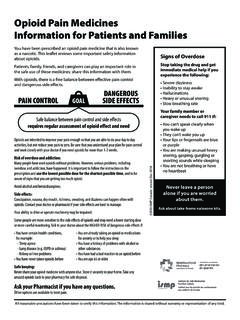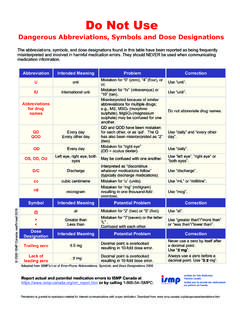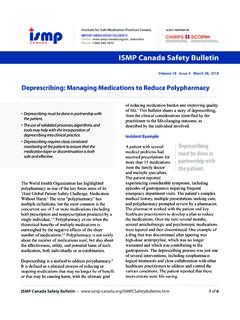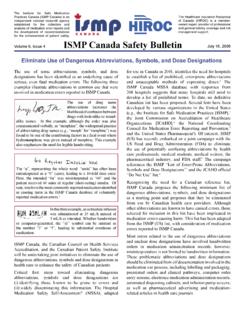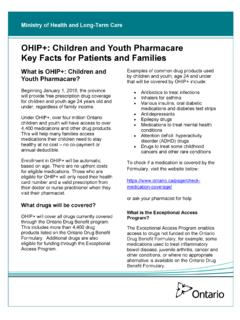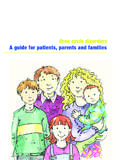Transcription of Opioid Pain Medicines Information for Patients and Families
1 You have been prescribed an Opioid pain medicine that is also known as a narcotic. This leaflet reviews some important safety Information about , family, friends, and caregivers can play an important role in the safe use of these Medicines ; share this Information with opioids, there is a fine balance between effective pain control and dangerous side are intended to improve your pain enough so that you are able to do your day to day activities, but not reduce your pain to zero. Be sure that you understand your plan for pain control and work closely with your doctor if you need opioids for more than 1-2 weeks. Risk of overdose and addiction: Many people have used opioids without problems. However, serious problems, including overdose and addiction, have happened. It is important to follow the instruction on the prescription and use the lowest possible dose for the shortest possible time, and to be aware of signs that you are getting too much alcohol and benzodiazepines. Side effects:Constipation, nausea, dry mouth, itchiness, sweating, and dizziness can happen often with opioids.
2 Contact your doctor or pharmacist if your side effects are hard to ability to drive or operate machinery may be people are more sensitive to the side effects of opioids and may need a lower starting dose or more careful monitoring. Talk to your doctor about the HIGHER RISK of dangerous side effects if: You have certain health conditions,for example: - Sleep apnea - Lung disease ( COPD or asthma) - Kidney or liver problems You have never taken opioids beforeSafe keeping: Never share your Opioid medicine with anyone else. Store it securely in your home. Take any unused opioids back to your pharmacy for safe your Pharmacist if you have any options are available to treat pain. Opioid Pain MedicinesInformation for Patients and Families Safe balance between pain control and side effectsrequires regular assessment of Opioid effect and needDANGEROUSSIDE EFFECTSPAIN CONTROLS igns of OverdoseStop taking the drug and get immediate medical help if you experience the following: Severe dizziness Inability to stay awake Hallucinations Heavy or unusual snoring Slow breathing rateYour family member or caregiver needs to call 911 if.
3 You can t speak clearly when you wake up They can t wake you up Your lips or fingernails are blue or purple You are making unusual heavy snoring, gasping, gurgling or snorting sounds while sleeping You are not breathing or have no heartbeat 2016 ISMP Canada revised Mar 2017 You are already taking an Opioid or medications for anxiety or to help you sleep You have a history of problems with alcohol or other substances You have had a bad reaction to an Opioid before You are age 65 or older All reasonable precautions have been taken to verify this Information . The Information is shared without warranty or representation of any from.
